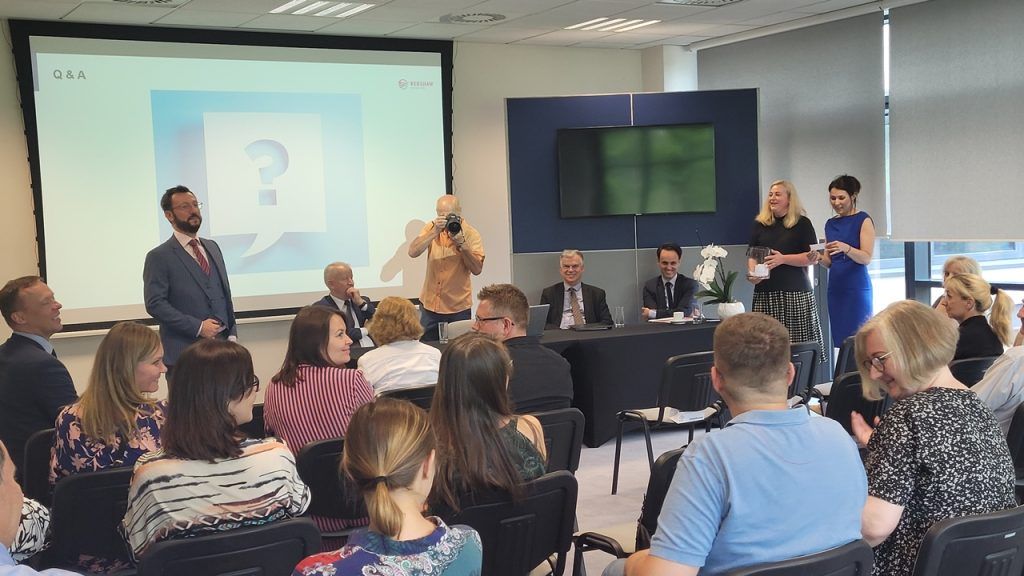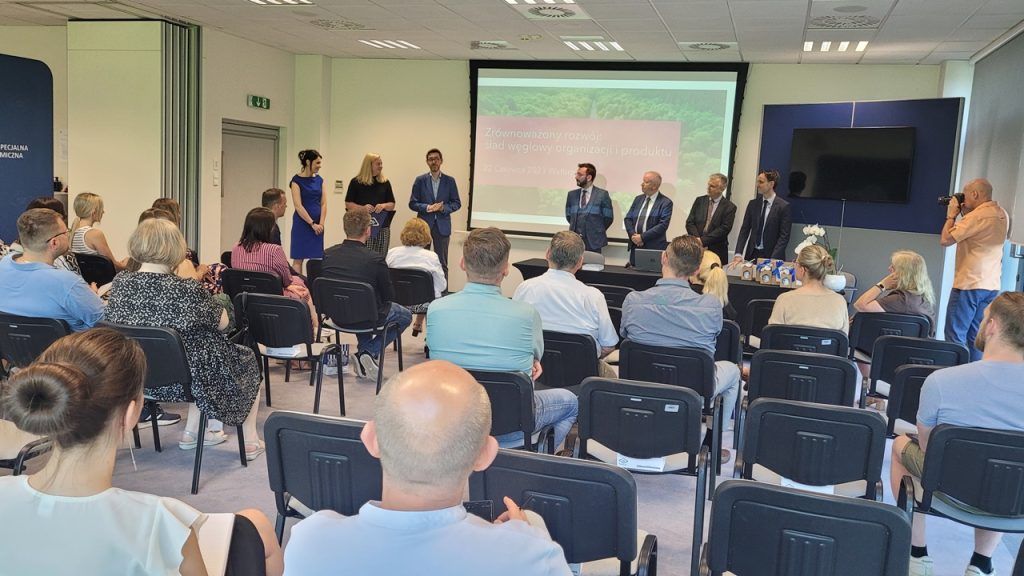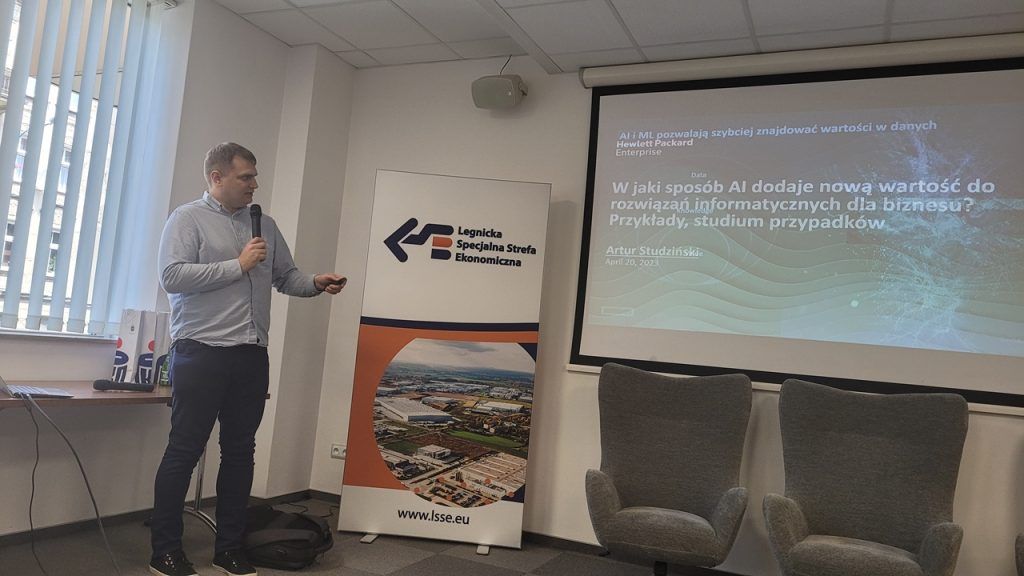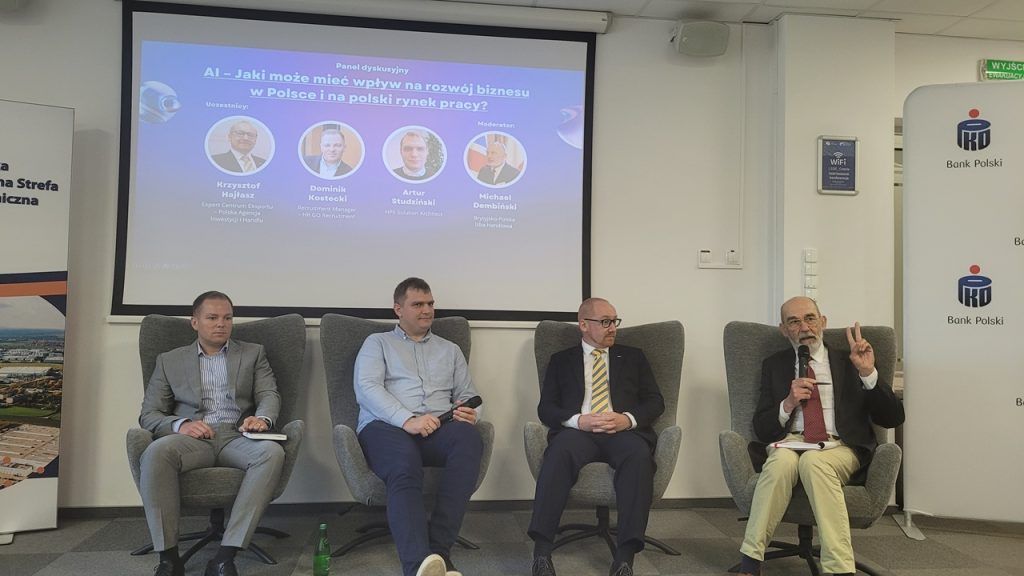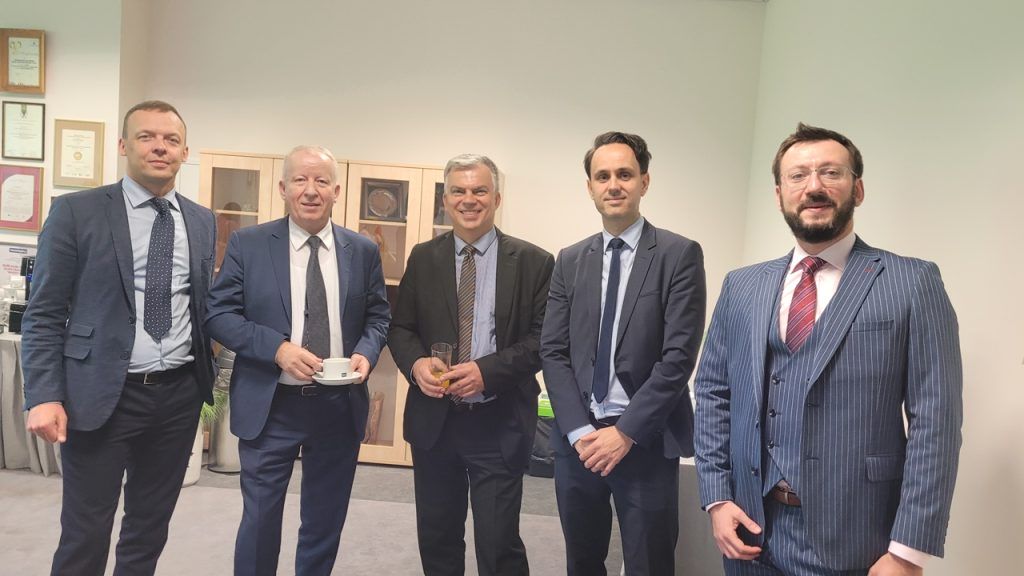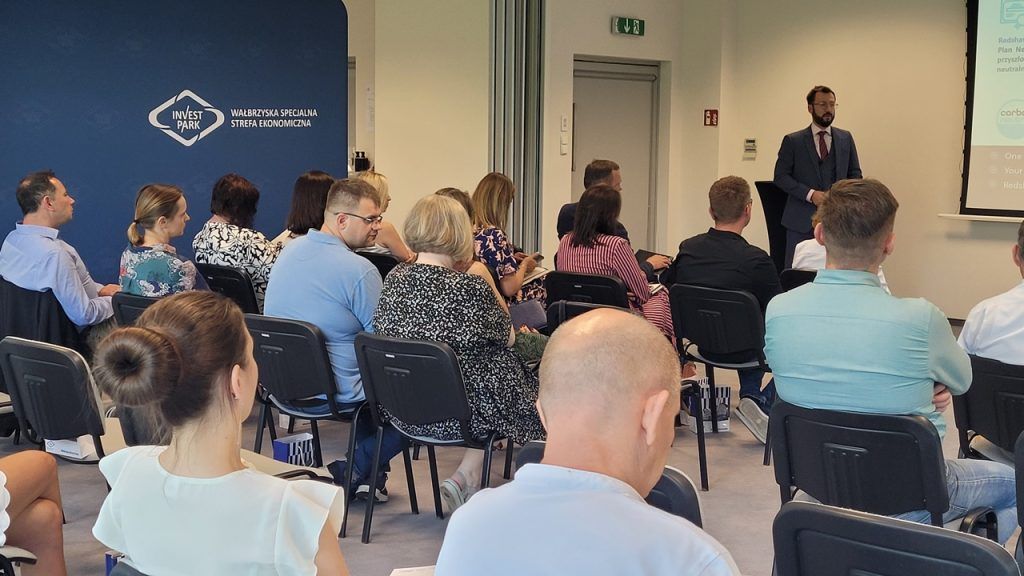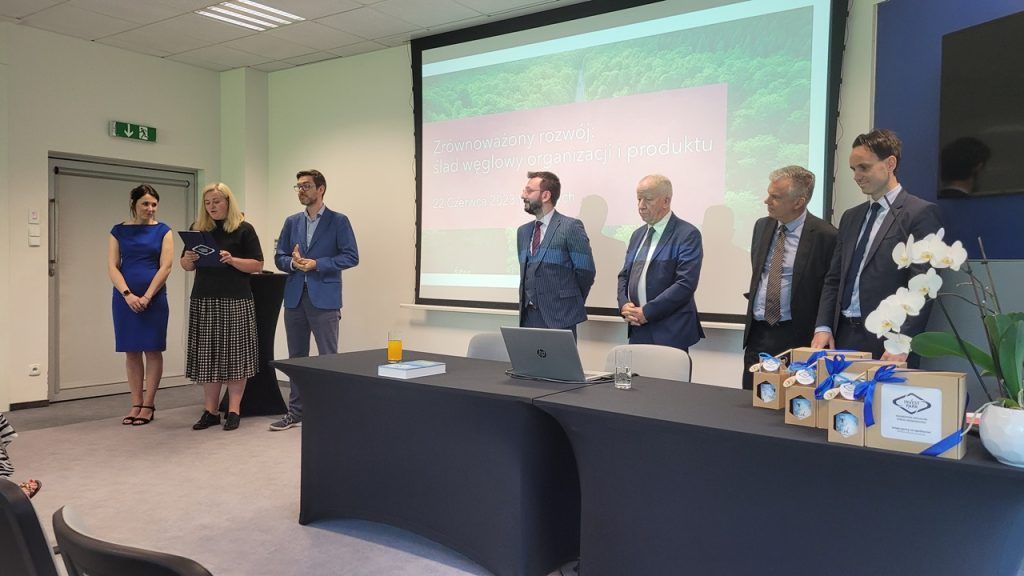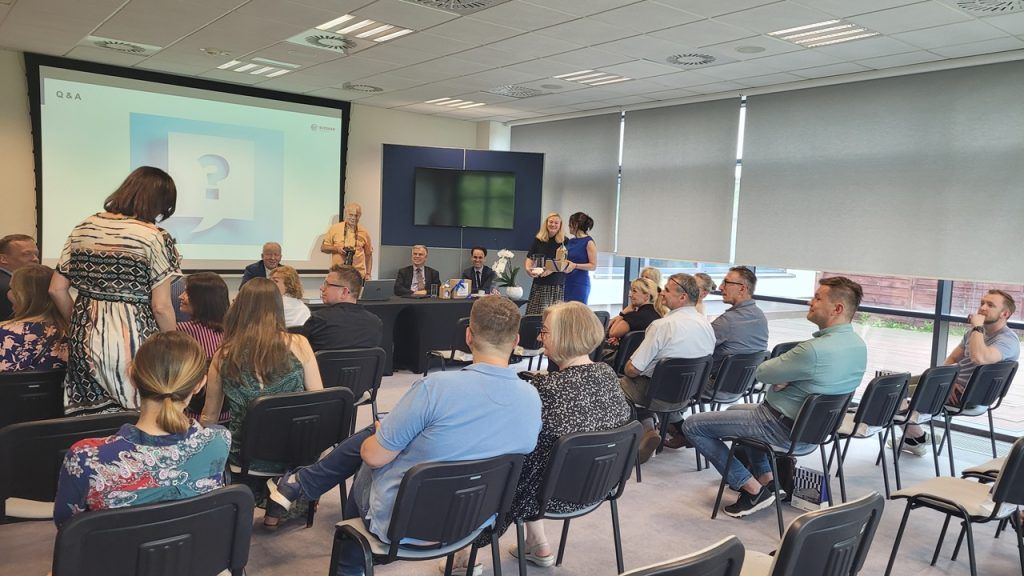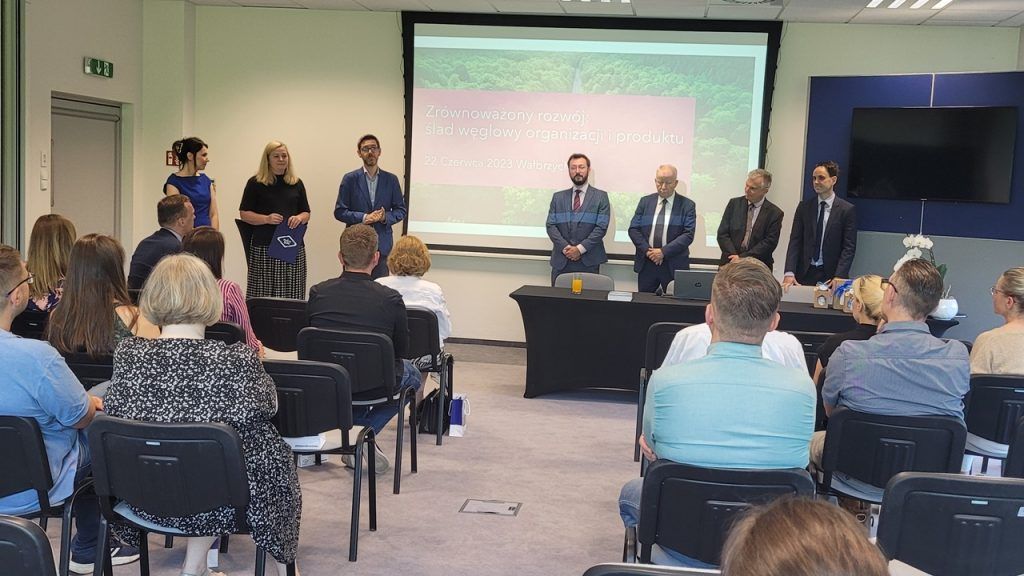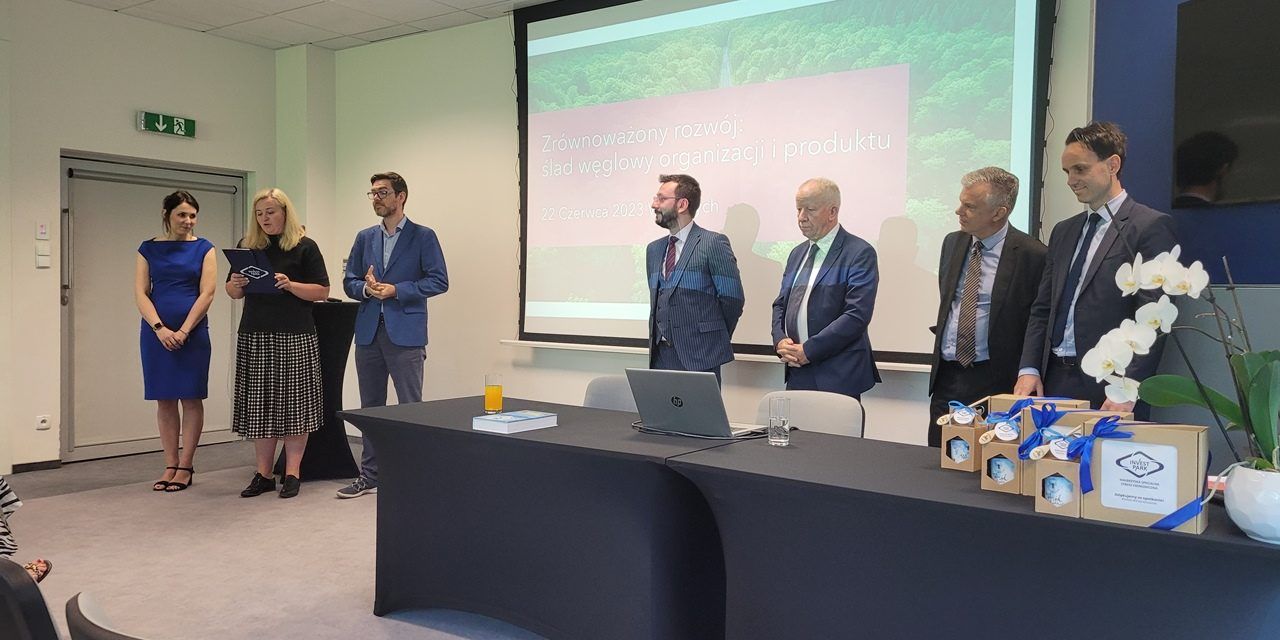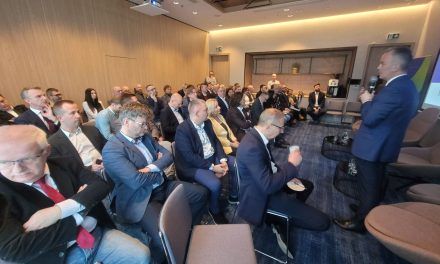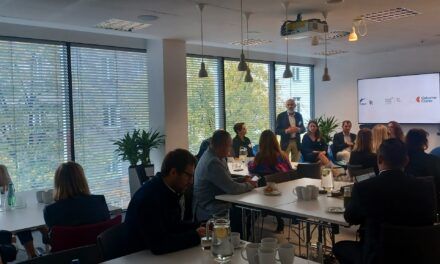The BPCC, Redshaw Advisors, TGC Corporate Lawyers and Starzyk Group, took part in two events on two consecutive days, entitled “Sustainable Development: Organization and Product Carbon Footprint.” The first took place on 22 June in Wałbrzych at the Wałbrzych Special Economic Zone’s Invest Park, the next day, the event was repeated in Legnica at the Legnica Special Economic Zone’s conference centre.
The speakers were Karol Piórkowski and Jakub Hiterski, Redshaw Advisors, Artur Rogozik, Michał Frąckowiak, TGC Corporate Lawyers, and Dr Krzysztof Starzyk, from Starzyk Group
During both events, experts discussed topics related to sustainable development, focusing on the concept of ESG reporting and the challenges associated with calculating organisations’ carbon footprints, and those of the products they manufacture. The agenda covered both the legal framework for ESG reporting and the methodology for calculating greenhouse gas (GHG) emissions.
Participants gained insights into the meaning and significance of ESG (Environmental, Social, and Governance) criteria. The legal foundations of ESG reporting were also elaborated upon, emphasising the obligations and reporting requirements for this year and beyond. Potential penalties for non-compliance with ESG regulations were also addressed.
The calculation of an organisation’s and of its products’ carbon footprints was a central theme. Expert speakers explained the methodology for quantifying greenhouse gas emissions and highlighted the climate goals, reporting obligations, and corporate commitments towards achieving Net Zero. The participants learned about the different scopes of carbon footprint, namely Scope One, Two, and Three, as defined by the Greenhouse Gas Protocol. The significance of Scope Three – indirect emissions occurring as a result of a company’s value chain but arising from sources not owned or controlled by the reporting organisation – was emphasized.
The event also provided practical examples to guide participants through the process of calculating an organisation’s carbon footprint based on its total emissions across all three scopes. A sample organisation’s carbon footprint report was presented, showcasing the necessary components for comprehensive reporting. Additionally, a long-term and short-term carbon footprint management plan was highlighted as a crucial element of ESG reporting for sustainable development.
The methodology for calculating a product’s carbon footprint was also explained through a practical example. Participants gained an understanding of the steps involved in quantifying emissions associated with a specific product. Importantly, the concept of greenwashing, its implications, risks, and strategies for avoidance were discussed.
The events were concluded with a focus on emission offsetting as a means of compensation. The process of offsetting emissions, the purchase of offsets, and the concept of carbon neutrality certification were presented as potential strategies for achieving carbon neutrality.
Overall, both events provided valuable insights into the legal aspects of ESG reporting, as well as the methodologies and considerations involved in calculating an organisation’s and its products’ carbon footprint. The panel discussion and subsequent Q&As emphasised the importance of sustainable development and the need for comprehensive reporting to drive organisations towards a more environmentally friendly future.
Legnica
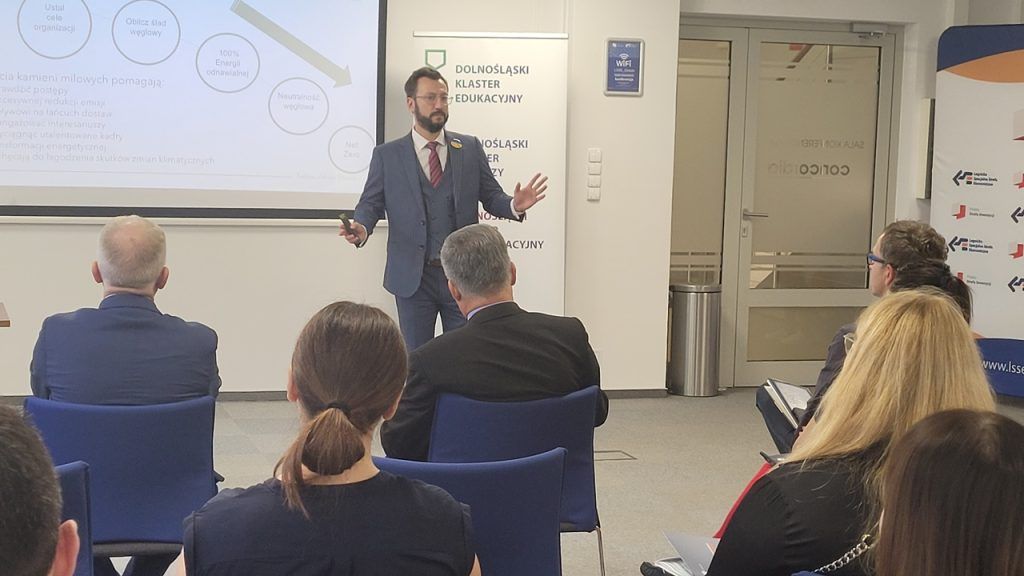
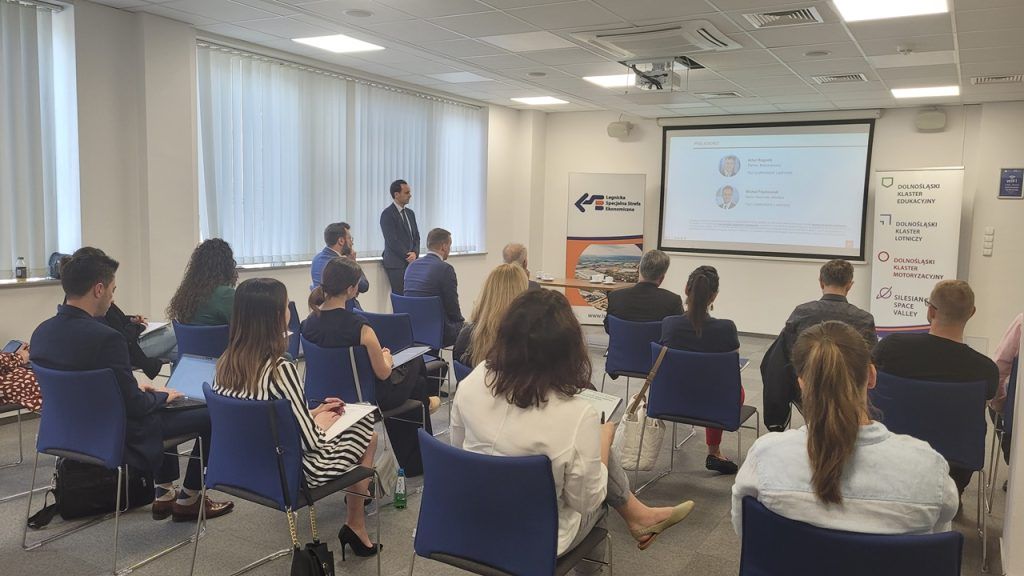
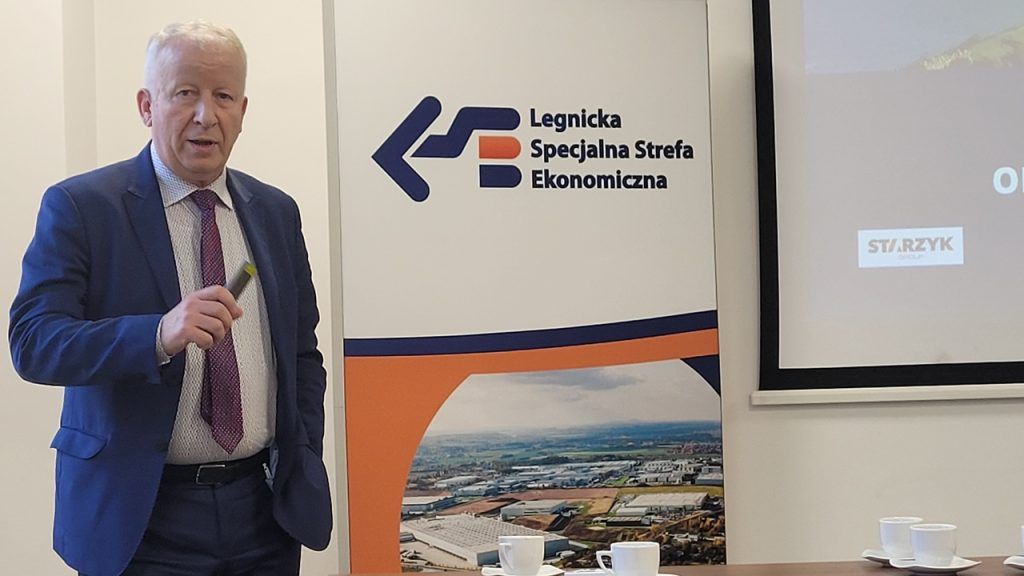
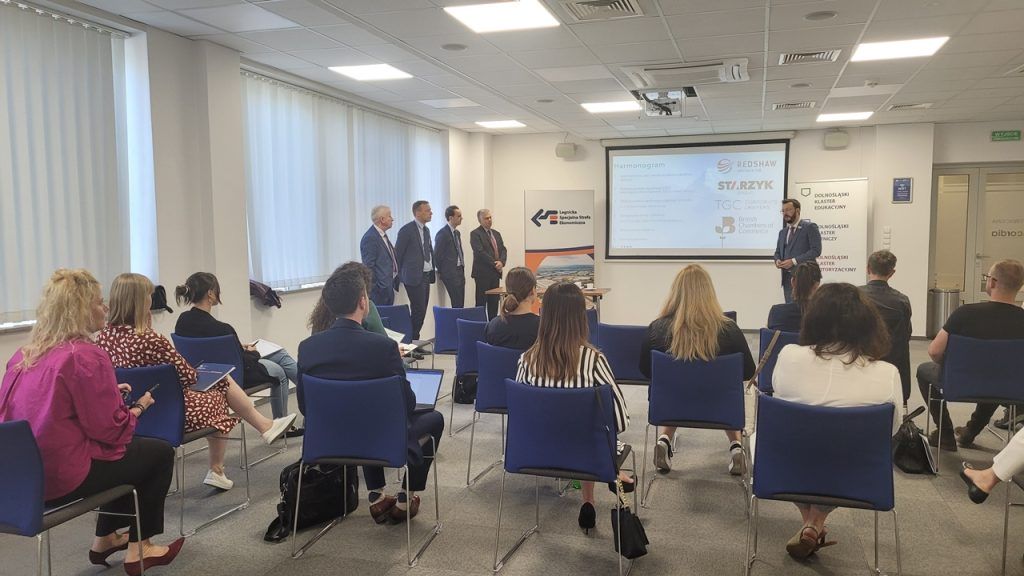
Wałbrzych
